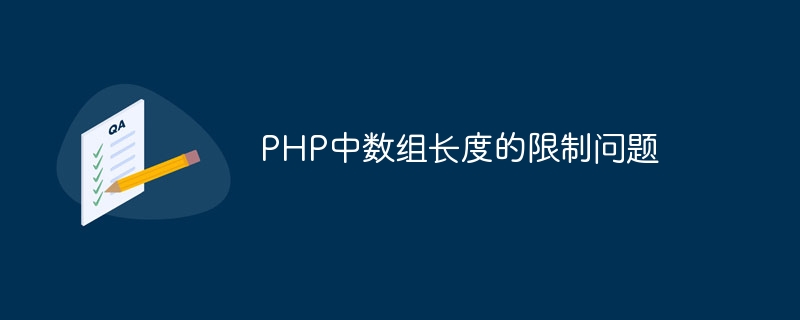

The limitation of array length in PHP
In PHP, an array is a very commonly used data structure used to store a set of data. However, there are certain restrictions on the length of arrays in PHP. In this article, we will explore the issue of array length limits in PHP and provide some concrete code examples to illustrate the issue.
The length of arrays in PHP is affected by memory limitations. Specifically, when PHP tries to allocate an array, it looks at the current memory limit and uses that limit to determine the maximum length it can allocate. If the length of the array exceeds this limit, a memory exhaustion error will occur. Therefore, when writing PHP code, we need to pay attention to the limit of the array length to avoid program crashes due to too large arrays.
The following is a simple example demonstrating the impact of array lengths on memory limits.
// 设置内存限制为 10M
ini_set('memory_limit', '10M');
$array = array();
// 尝试向数组中添加大量数据
for ($i = 0; $i < 1000000; $i++) {
$array[] = $i;
}
print_r($array);In the above code, we first set the memory limit to 10M, and then try to add 1000000 integers to the array. Since the array length exceeds the memory limit, this code will cause a memory exhaustion error.
In order to avoid the problem of array length being limited, we can adopt some strategies. For example, data can be processed in batches to avoid adding too much data to an array at once; a database can be used to store large amounts of data instead of relying entirely on arrays, and so on.
In general, the limitation of array length in PHP is a key issue that needs attention. By understanding the impact of memory limits and adopting appropriate strategies to handle large amounts of data, we can effectively avoid errors caused by array lengths exceeding the limit.
The above is the detailed content of Array length limit issue in PHP. For more information, please follow other related articles on the PHP Chinese website!




